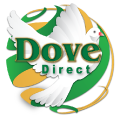Dove Direct Print and Marketing Blog, “Marketing in a Damaged Attention Economy”
Welcome to the Dove Direct Print and Marketing Blog. Today's post, "Marketing in a Damaged Attention Economy" identifies a part of the economy, according to Ashlyn Gentry, managing director of Human Ventures Co., that is broken. Ms. Gentry points out that people's mental health, society and democracy are all at risk. As a marketer, you know that grabbing attention is a fundamental step in marketing. How a brand executes attention grabbing parameters within ones marketing strategies points to ethical considerations.
F. W. Olin Graduate School of Business at Babson College consistently receives accolades as the number one institute for Entrepreneurship over the past two decades. Why is that important? When it comes to entrepreneurial ethics, the MBA program at Babson includes a class on ethics that is taught during the first year of the program. In an effort to help their students do the right thing, ethics is placed front and center. Ethics, or the lack thereof, is under fire across the board, from advertising and marketing to social media posts to some news outlets. And nothing is exempt. In fact, you may have noticed that some reviews in the Apple App Store point to what consumers are having issues with, namely, those apps whose advertisements fail to inform prospects that they will have to purchase more add-on components to unleash the apps full potential. Again, no one or app or social media post is exempt.
What is the Attention Economy?
In short, the attention economy is the most significant part of today's economy. In fact, the attention economy represents the largest segment of the 80 trillion-dollar global economy. To place a finer point on it, the attention economy is the result of revenue generation that organizations reap every time a person responds to a message via their cell phone, desktop, or any other device.
Marketers, brands and c-suite executives that compete for audience attention, have in some cases, diverted away from information and instead present content that promotes and encourages clicking. Headline creation now focuses on feeding users a 24/7 drug-like fulfillment objective that poses serious physiological consequences.
Not only does this attention economy effect how we respond to online articles and posts, but also instructs us how to react to threats we see in the news. The framing of news headlines affects physiological responses and drives the audience reaction to that news. For example, when a news headline distorts the main content of a story, the audience has a tendency to form an opinion prior to reading the entire story. The physiological impact of these types of instances can be far reaching, and in many cases are the reasons that stir volatile actions from those whose opinions have been bolstered by headlines.
For example, in the instance of reacting to a story about a car crash, the human brain reacts to that story concerning the car crash similarly to the way it would react to a real car crash. Therefore, it is with great concern that people are responding to events and content based on a physiological reaction that would appear to be real; when in essence it may be that the mind has been tricked into believing that a dangerous situation is real, when in fact, it is not real, nor does it really exist.
Marketers, brands, and publishers are using deceptive headlines to trick us into clicking, whereby they are trading emotional and physical anguish for the ability to fatten their revenue.
Down the Bogus Attention Black Hole
Would you believe that just about 50% of all revenue generated by the attention economy is fake? For starters, bot traffic is consistently targeting websites repeatedly for the sole purpose of impersonating human traffic. Bots can range from click farms to AI bots that can run remotely from a single device.
It is difficult to ascertain what is real from what is fake. No doubt you may have experienced inaccurate content from some of our most trusted news organizations and political leaders. Technological advances that can supplant images and falsify videos of various celebrities and politicians are often difficult to discern as being real or fake.
As a result, these sophisticated posts drive response and engagement rates to new heights. Further, audiences are reacting to fake commentary that ends up dividing and creating ongoing battles. Remember that misinformation is viewed 10 times faster than the truth. It is also deeply concerning that marketers and advertisers are playing into this unwitting falsification, all for money.
Marketing Opportunities
As we attempt to navigate through the false stories, malicious bot attacks, deceptive headlines, and misinformation in general, marketers and brands are presented with an opportunity to stand out. Truth in advertising, while in today's world represents a seemingly unimportant role is nonetheless the game changer that can solidify the best brands in the minds of our collective audiences.
The challenge behind creating noticeable headlines and taglines that are true, requires a more robust approach in content creation. The competitive landscape dictates that truth in advertising goes much farther in developing brand equity and trust in the mind of the consumer. Brands that take this truth challenge to heart will be the ones that stand the test of time.
Truth Finds a Way
On average, cell phone users look at their phones over 150 times per day. Well, do the math. 150 times X-amount of millions represents a frequency statement that any advertiser would want to participate in. Another societal trend that is coming to light is the fact that more and more people are opting out of news and social media engagement.
Finding the truth has never been more difficult than it is today. The interesting aspect associated with truth is that truth tends to stand the test of time. The number one ingredient inherent in a successful marketing campaign is that it contain frequency and happen across time and mediums.
Brands and marketers share the responsibility with consumers to propagate and disseminate truth in all areas of marketing communications. To that end, publishing truthful information is paramount for brand success. Therefore, marketers and brands will need to address spending on websites and online destinations that are overwritten with fake bots looking to impersonate human traffic.
Technology experts and coders also have a responsibility to create systems that can alleviate fake information and fake technologies that are designed to disseminate misinformation. That said, brands and marketers can take the lead and communicate with their audiences in ways that manifest truthful engagements.
The Net-Net
Misinformation, fake headlines, and less than truthful musings, all play a part in the outrageous human behavior that we are seeing on a global scale. One good way for advertisers and marketers to combat online fake news is by using print in their marketing strategies. Print continues to be the most truthful marketing vehicle we have today.
Let's have a conversation about PUR binding, direct mail marketing strategies, printing, transactional documents, variable digital printing, brand equity and unified marketing collateral during our next Open House. We invite you to join us on Thursday, April 25, 2019, for an hour or two, anytime between 9:30 am to 4:30 pm. Let us show you how to improve your document processes to optimize your workflow, reduce your costs, and maximize your organization's printing, letter shop, and mailing capabilities. Dove Direct has an official USPS certified bureau located within our offices that will save you time and money. Moreover, if you bring us your files, we will create a demo file for you. For more information, call Carla Eubanks at 404-629-0122 or email Carla at This email address is being protected from spambots. You need JavaScript enabled to view it..
Dove Direct, your Atlanta based print and mail solutions provider offers organizations end-to-end data, printing, and mailing solutions: Data Management, Variable Digital Printing, LetterShop and Fulfillment, Fully Automated MLOCR Presort Bureau, Marketing and Production Management Support and Secure Data Life Cycle Management.
If you don't want to wait for the Open House, you can reach Dove Direct today by calling 404-629-0122 or use the contact form for Dove Direct.





